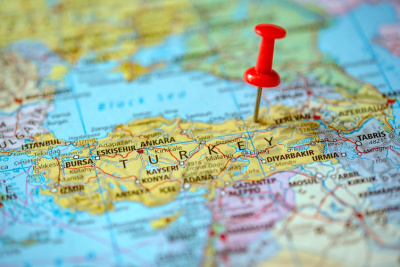The Reset of the Nation Alliance: Returning Turkey to the West
By Barçın Yinanç
March 9, 2022
The Nation Alliance reasserts Turkey’s place in the West and as a Western democracy. In case of victory, the Turkish opposition alliance will orchestrate a careful distancing from Russia and reset Turkey’s relations with its Western allies. What the main Turkish opposition alliance holds forth is a return to the decades-long principles of the Turkish republic that will be marking its centenary this year. These include, notably, the principle of non-interference in internal affairs of other nations. The opposition pledges to “put an end to practices based on domestic political calculations and ideological approaches in foreign policy.”

Çandar: Threatened by Russia, Turkey clings to EU
Cengiz Çandar in Radikal writes that Turkey is seeking a closer relation with the EU because the historical rivalry between it and Russia has been revived, with Turkey being encircled on three fronts by a Russia that has annexed Crimea to the north, has strengthened its military ties with Armenia to the east and has become entrenched to the south by its support to the Kurds in the vicinity of Aleppo and has denied Turkey access to the north Syrian air space. In this context, Ankara (which does not mean exclusively the AKP government) views the PKK as an “asset” that Russia is using or will use against Turkey. The Turkey-EU “refugee bargaining” becomes intelligible by looking at this big picture. Turkey, which is “besieged” by Russia and feels to under “strategic threat” is reorienting in the direction that remains open for it, that is to the West, across the Aegean Sea. At the same time, Ankara is exploring a “common ground” with Iran in countering the Kurds, just like Turkey did back in 1937, when the Saadabad treaty was concluded with Persia. This “political maneuver” by Turkey is also an attempt to break the Russia-Iran entente over Syria.
Turkey Is Not Going to Be “Normalized” Under the AKP’s leadership
By Toni Alaranta (vol. 8, no. 14 of the Turkey Analyst)
There is widespread expectation that “normalization” and democratic consolidation will follow the June 7 election, which deprived the ruling Justice and Development Party (AKP) of its majority. The talk about “normalization” and President Recep Tayyip Erdoğan becoming “isolated” presupposes that Turkey’s democratic travails emanate exclusively from Erdoğan’s power hunger, and that once this factor is eliminated, the AKP will once again become the “normalizing force” it allegedly was previously. However, “normalization” would mean abandoning not only Erdoğan but the very political narrative disseminated by the AKP during its years in power, and thus the mission of the party.
Turkey's Leadership Aspirations in NATO Weakened by Petty Politics
By Richard Weitz (vol. 5, no. 12 of the Turkey Analyst)
NATO’s May 20-21 heads-of-state summit in Chicago reminded everyone how Turkey is making important contributions to NATO in many key areas—the war in Afghanistan, addressing new missions such as projecting security into North Africa, and developing new defense capabilities.. Turkey aspires to a leadership role in the alliance, with the hope that President Abdullah Gül, who attended the summit, will become the next NATO Secretary-General. But Turkey’s contributions risks being overshadowed by its petty efforts to limit NATO’s ties with Israel and the European Union. While these bilateral Turkish disputes are important, they should not be allowed to contaminate NATO’s vital multinational security missions.
Turkey and the EU: The Disappearing vision
By Gareth H. Jenkins (vol. 4, no.1 of the Turkey Analyst)
On December 31, 2010, Belgium’s six month presidency of the EU closed without any chapters in Turkey’s membership negotiations being opened. It was the first time an EU presidency had been concluded without the opening of any chapters since Turkey’s accession process was launched in October 2005. Although at least one chapter is expected to be opened during the first half of 2011, it is becoming increasingly difficult to sustain the impression that the accession process is still alive, much less that there is any realistic prospect of Turkey joining the EU in the foreseeable future.



